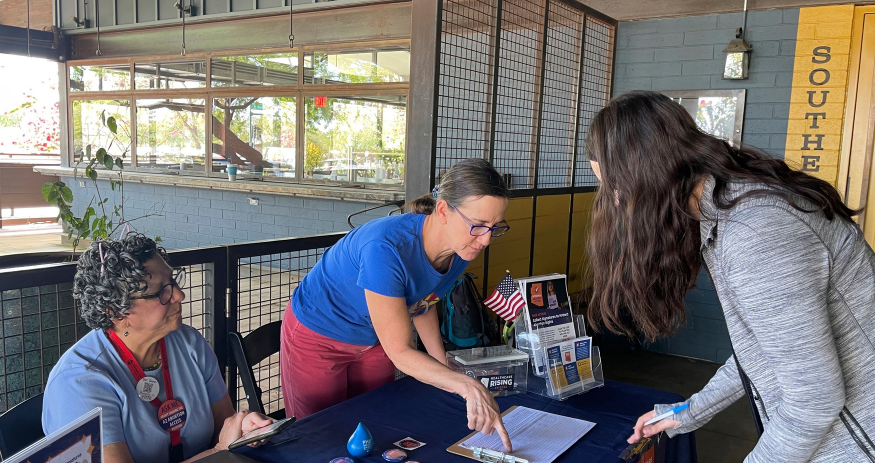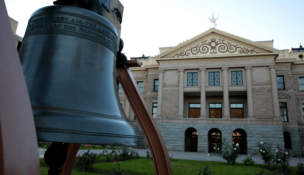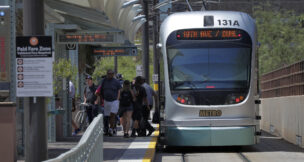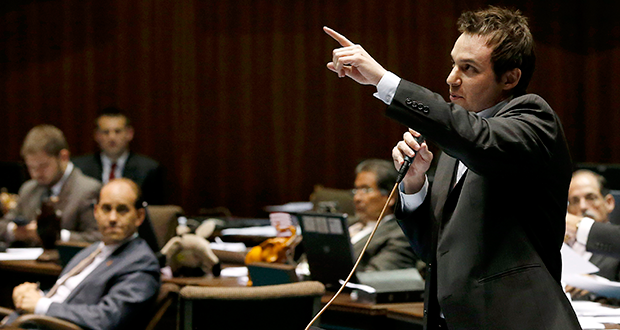Prop. 134 raises over $400k, opponent warns it could end all initiatives
Jakob Thorington Arizona Capitol Times//October 24, 2024//
Prop. 134 raises over $400k, opponent warns it could end all initiatives
Jakob Thorington Arizona Capitol Times//October 24, 2024//
A strong fundraising effort is going toward a ballot referral that would change the voter initiative process in Arizona.
More than $400,000 has been raised in support of Proposition 134, the Distribution Requirement for Initiatives Amendment, according to third quarter campaign finance reports.
Only two other ballot measures have seen more fundraising. Supporters of the Arizona Abortion Access Act have spent more than $700,000 in support of the measure and $500,000 has gone toward support of Prop. 312, the Property Tax Refund for Non-Enforcement of Publican Nuisance Laws Measure.
Proposition 134 would change the initiative process by requiring signature thresholds be met in all 30 legislative districts of Arizona, instead of only statewide, to qualify voter initiatives for the ballot.
A voter initiative to change state statute currently takes 10% of signatures cast for governor in the last general election to qualify for the ballot, and a constitutional amendment requires petitioners to gather 15% of signatures. Prop 134 would also require constitutional amendments to meet the 15% threshold in all 30 legislative districts to get on the ballot.
Most of the money raised in support of the measure has come from the political action committee Make Every Voice Heard, with a contribution of $210,000 on Sept. 26, and another contribution of $197,000 on Aug. 28.
The PAC’s chairman, Philip Bashaw, said the measure would make the signature collection process for voter initiatives more fair by requiring petitioners to seek signatures outside of Maricopa County.
“It brings back the nature of what the citizen initiative process is all about. When you have something that’s a groundswell of support from the citizens, it then goes to the ballot and gets approved,” Bashaw said. “We think it’s a fair and commonsense way to ensure that everyone in the state has a voice in the ballot proposition system.”
Money raised in support of the measure has far exceeded fundraising against it. Opponents have spent about $20,000, with smaller donations from various companies that do business in the state.
A group opposed to the measure is Arizona Public Health Association, which argues the measure would make it more difficult to get voter initiatives that address public health on the ballot.
In an Oct. 16 webinar hosted by association Executive Director Will Humble about ballot measures, Humble referenced the Smoke-Free Arizona Act in 2006 that was approved by voters after years of inaction from the Legislature on the issue of smoking in places of employment and enclosed public places.
Humble called Prop. 134 an “existential threat” to future voter initiatives and said voter initiatives would be much more difficult to get on a ballot under Prop. 134’s requirements.
“If Prop. 134 is passed by the voters, it’ll probably never be changed and my guess is, we’ll never have another voter initiative in the state ever,” Humble said. “I just don’t see how any future voter initiative could make it. Honestly, I’m not even sure (the Arizona Abortion Access Act) could’ve made it because of the difficulty of getting signatures in a place like Mohave County for something like abortion care.”
According to the National Conference of State Legislatures, 24 states have some kind of citizen initiative system that allows voters to place an item on the ballot and several of them have some kind of geographic requirement like Prop. 134 is proposing.
But many of the states that have geographic requirements don’t have as strict of requirements as what Prop. 134 is proposing. Massachusetts requires no more than 25% of signatures to come from a single county and Michigan requires no more than 20% of signatures to come from a single congressional district.
Other states require a portion of legislative or congressional districts to meet voter initiative threshold requirements. Colorado requires 2% of electors in each state Senate district to sign an initiative petition and Utah has a 10% threshold of votes cast for U.S. president in the last general election in each of its 26 state Senate districts.
Opponents of Prop. 134 also argue that it could give one legislative district veto power over the rest of the state.
The Arizona Chamber of Commerce and Industry supports the measure. Its CEO, Danny Seiden, called the veto argument “ridiculous” during a September Arizona Horizon debate of the issue because legislative districts are split up to have roughly the same number of people in each of them.
Each legislative district has roughly 230,000 to 240,000 residents, which would require about 200,000 people to reject a proposed voter initiative to block it from the ballot under Prop. 134 – if it passes.
“If an idea is that bad where it turns off 200,000 people, it shouldn’t be on the ballot,” Seiden said during the debate.










































